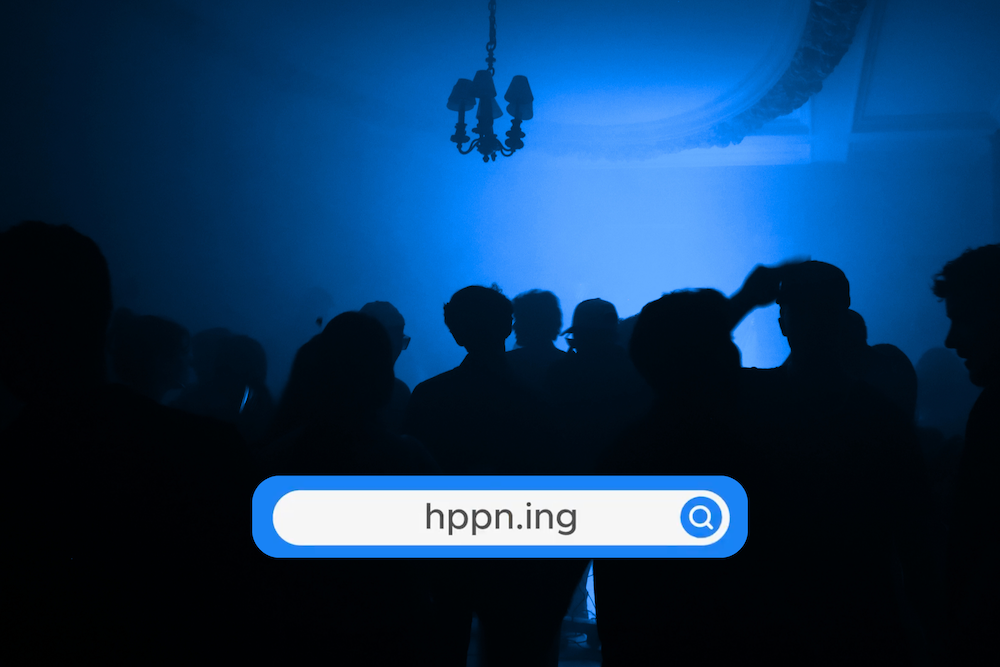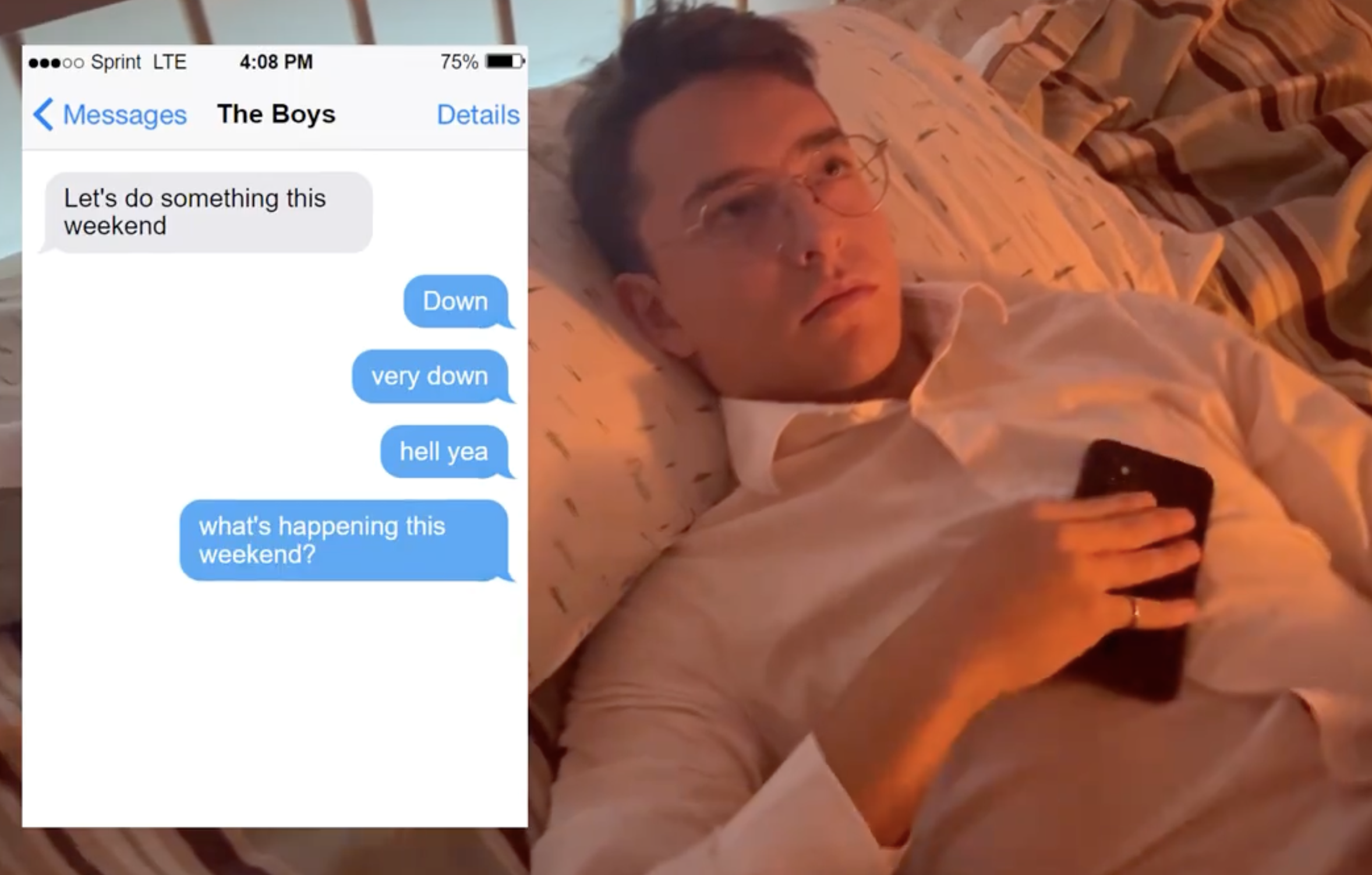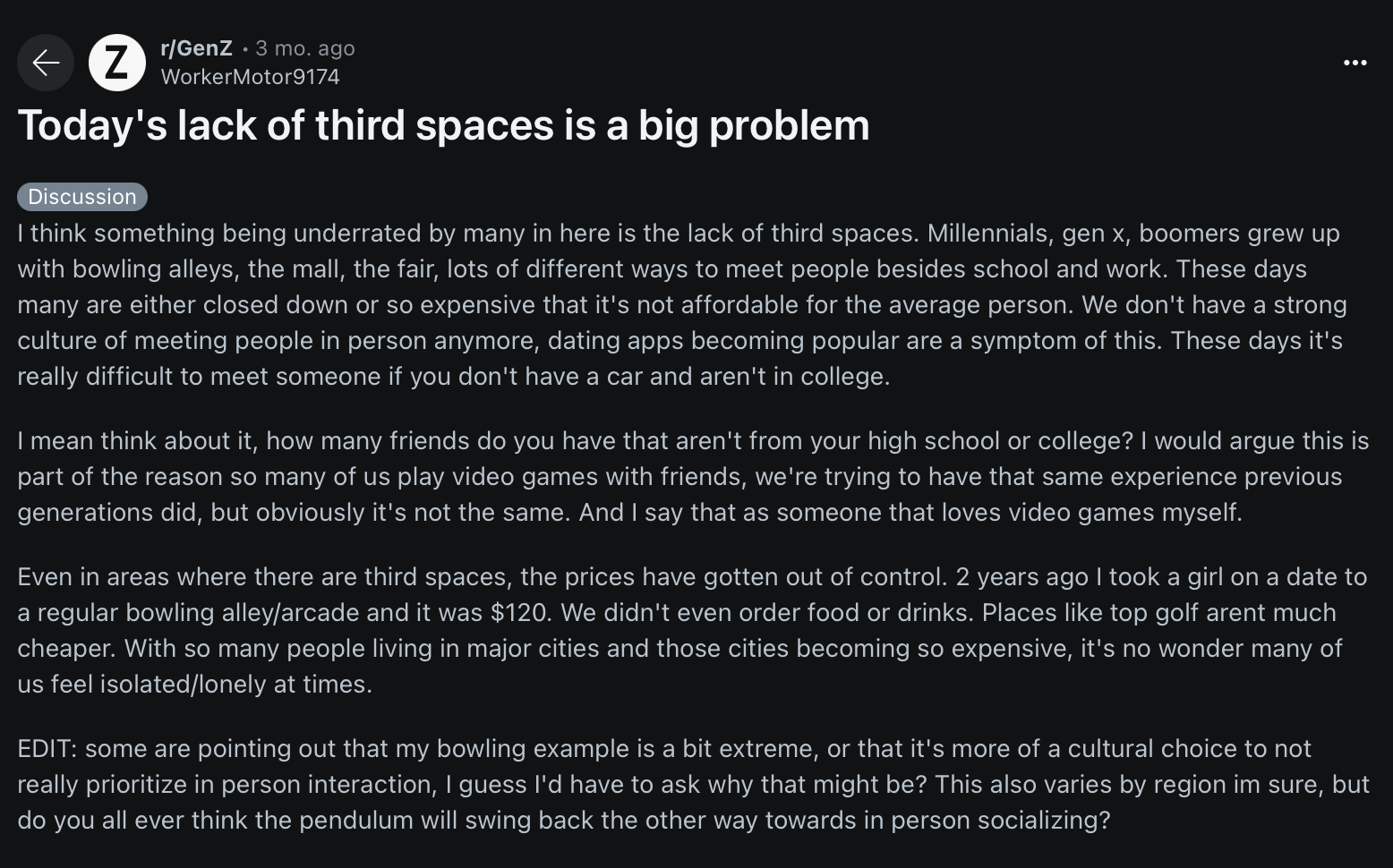What’s Hppn.ing? How Event Discovery Drives Community Building
THERE’S ALWAYS SOMETHING HAPPENING IN THE CITY, but HOW DO YOU STAY IN THE KNOW?
Are you lonely? Itching for connection? Starved for human interaction?
Don’t worry, you aren’t alone—well, maybe you are right now as you read this, but not for long!
It’s no secret that capitalism profits off individualism and the social isolation that the Internet fosters. Real life events encourage a culture that's inherently rooted in community, shared values, and collective experiences. The rise of individualism as a result of social media is a massive factor in the decline of community-focused events—we’ve begun to value transactional relationships (networking, career connections) over building genuine connections based on mutual interests. As a result, the decline in meaningful community building has inspired a way of living that feels lonely, with people prioritizing individual experiences rather than experiences rooted in community and collective enjoyment.
A recent report from PION! on Gen Z culture suggests that “whether online or offline, this generation wants connection... And whilst we see this clearly on platforms like TikTok or Reddit, the world of IRL, of course, perfectly lends itself to communities.”
It goes without saying that many of us are still recovering from COVID-19 (maybe not physically, but definitely mentally). The pandemic forced us into solitude, away from our friends, family, and communities. As a result, we’ve been thrust into a serious loneliness epidemic, and there’s data to back it up. According to a 2023 Toronto Foundation report, Toronto is one of the loneliest places in Canada, painting a rather somber picture of what post-pandemic life is like in the bustling city. The living conditions in Toronto have become bleak, where the high cost of housing, homelessness, and climate change have converged into a “polycrisis”, leading to high levels of anxiety, depression, and loneliness.
According to the report, Toronto residents are withdrawing from communities and each other, interacting less with their communities, friends, and families—the number of people in Toronto with six or more close friends has declined by 20% from 2013 to 2018, and a further 9% from 2018 to 2022, to 28%.
That’s where hppn.ing comes in, an event discovery website designed to make finding events easier and more accessible. Their mission is to connect people and encourage them to engage in activities beyond their usual routines. By aggregating public event data from across the internet, hppn.ing helps users effortlessly discover their next event.
Most avant-garde subcultures have gone online, and subsequently, their outreach and communications exist across various social platforms, making it difficult for individuals to find their events or connect with these communities. David Feldt, founder of hppn.ing, seeks to combat this issue. David is a recent UW grad, who works at a semiconductor company by day but battles the loneliness epidemic by night. After finding himself too often sitting alone on Friday nights not having anything to do, he was inspired to build hppn.ing, with the goal of fostering community and giving people the opportunity to go out.
via @davidfeldt
“There's so many different events sites and places to look for events and realistically, all I want know is what's happening in the city,” says David, “which is why I called it hppn.ing, because I wanted to create a way to help people easily find events.”
It’s no surprise that getting out and connecting with people IRL is the best way to foster community, yet despite the plethora of social media platforms at our fingertips, it’s more difficult than ever to actually find events—no one has been able to solve and master event discovery, “I feel like event discovery hasn't really been like that mastered,” David explains, “I don't know, every time I ask someone how they find events they usually just say through their friends or whatever, and it's very rare that you find someone who actually uses an event discovery site. When I do find someone they say that Instagram recommends them events sometimes, but Instagram isn’t made for event discovery.”
“My goal with this idea is to bring people together and make that process very, very easy. Right now we’re a generation where we’re so separated from each other because of the Internet, even though it’s supposed to connect us.”
One of the internet’s favourite buzzwords to throw around right now is the idea of third spaces, which refers to the social surroundings that are separate from the two usual social environments of home ("first place") and the workplace ( "second place"). The University of Chicago emphasizes the importance of having access to third spaces, “third places are where we can both affirm our own identities and build empathy for identities different from our own... When we connect with members of our community at third places, we can find people who share racial, ethnic, linguistic, religious, sexual, and gender identities with us.” The disappearance of third spaces is a main factor in the rise of loneliness that Canadians across the nation are feeling.
Reddit user WorkerMotor9174 sums up how this is becoming a large problem, specifically among GenZ:
Screenshot via Reddit
David agrees with the above sentiment, expressing that “I feel like that's [the lack of third spaces] a problem that I want to tackle as well. Right now, I focus mainly on events, but eventually, I want to get into the realm of reoccurring events that take place at a certain location—let’s say there’s a pottery class that happens every Thursday at a specific art studio—I eventually want to get to that point where you know you can go to this pottery studio every week.”
During our conversation about the loss of third spaces and David’s ideas on how hppn.ing plans to tackle the issue head-on, I can’t help but feel confident that hppn.ing will be playing a large role in the future of community building here in Toronto. “My goal with this idea is to bring people together and make that process very, very easy. Right now we're a generation where we're so separated from each other because of the Internet, even though it’s supposed to connect us. I feel like it's disconnected me significantly from people when I think it should honestly bring us closer together. That's my vision of what I want to do with hppn.”
Right now hppn.ing only features events in Toronto, “I want [to feature] events that are local to the city.” Our city is full of so many creative, interesting initiatives—it feels like there’s always something happening, but most are facing hurdles in getting their events in front of the right audience. “One big thing that I've noticed is that a lot of events don't actually have a good way of marketing themselves. I experienced this a lot in Waterloo because I would see these events posted on their account social media page—there's this one coffee shop I would go to and they would post on their social media page when they had an event and then put it nowhere else. Unless you followed their page, you wouldn't know that they're doing a live comedy night for free.”
“That got me thinking, I want to try and find these undiscovered events that need more traction and bring light to them and make them easier to find. I find that if they post it on Instagram, there’s a very low chance that it's going to go viral and they probably don't want to pay for ads. I want hppn.ing to promote those [events/communities] who deserve the promotion and encourage more events to happen.”





